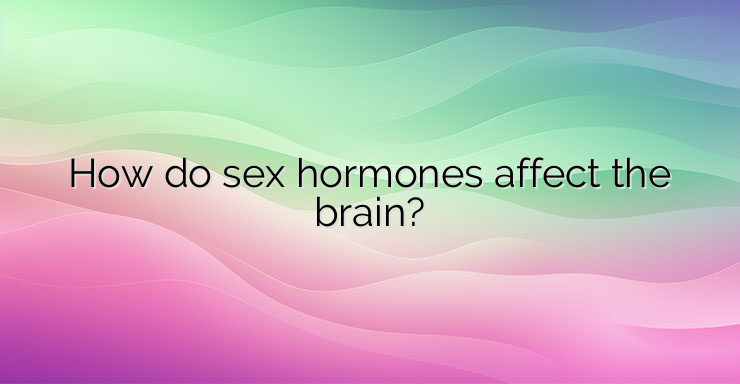Ever wonder how sex hormones like estrogen and progesterone really affect your brain? It’s fascinating! They work through a genomic mechanism, activating receptors inside cells to turn on specific genes. Unlike quick-acting peptide hormones, the effects of sex hormones take more time to kick in.
These hormones not only impact gene expression but also play a role in the synthesis, release, and metabolism of neuroactive substances in the brain. They even have a “fast connect” mode, influencing nerve cells and synapses directly through membrane receptors.
But wait, there’s more! It’s not just about genes and receptors. Estrogens also affect the brain through other means, like stimulating neurotransmitter synthesis and promoting the growth of certain cells. They’re like the architects of your brain’s development, supporting the lifespan of neurons and shaping how they connect with each other.
And it’s not just about neurons; sex hormones also affect glial cells, the brain’s support system. They help with myelination, the process of insulating nerve fibers, and nourish the nervous tissue overall, keeping it healthy and adaptable.
But let’s talk neurotransmitters. These are the brain’s chemical messengers, and sex hormones have a big influence on them. From norepinephrine to dopamine to serotonin, these hormones can tweak the activity of various systems in the brain, affecting everything from mood to motor function.
When it comes to estrogen, taking it can decrease noradrenaline synthesis and boost dopamine activity, leading to changes in mood and behavior. And progesterone? It helps balance out estrogen’s effects on certain neurons, promoting the production of feel-good chemicals like serotonin.
And here’s where it gets interesting: endorphins. These natural painkillers and mood boosters are influenced by sex hormones too. In menopause or after ovary removal, a drop in endorphins can lead to hot flashes, mood swings, and changes in pain perception.
So, next time you’re feeling a mood swing or sweating more than usual, remember, it could all be down to those tiny, powerful hormones doing their thing in your brain!


Leave a Reply